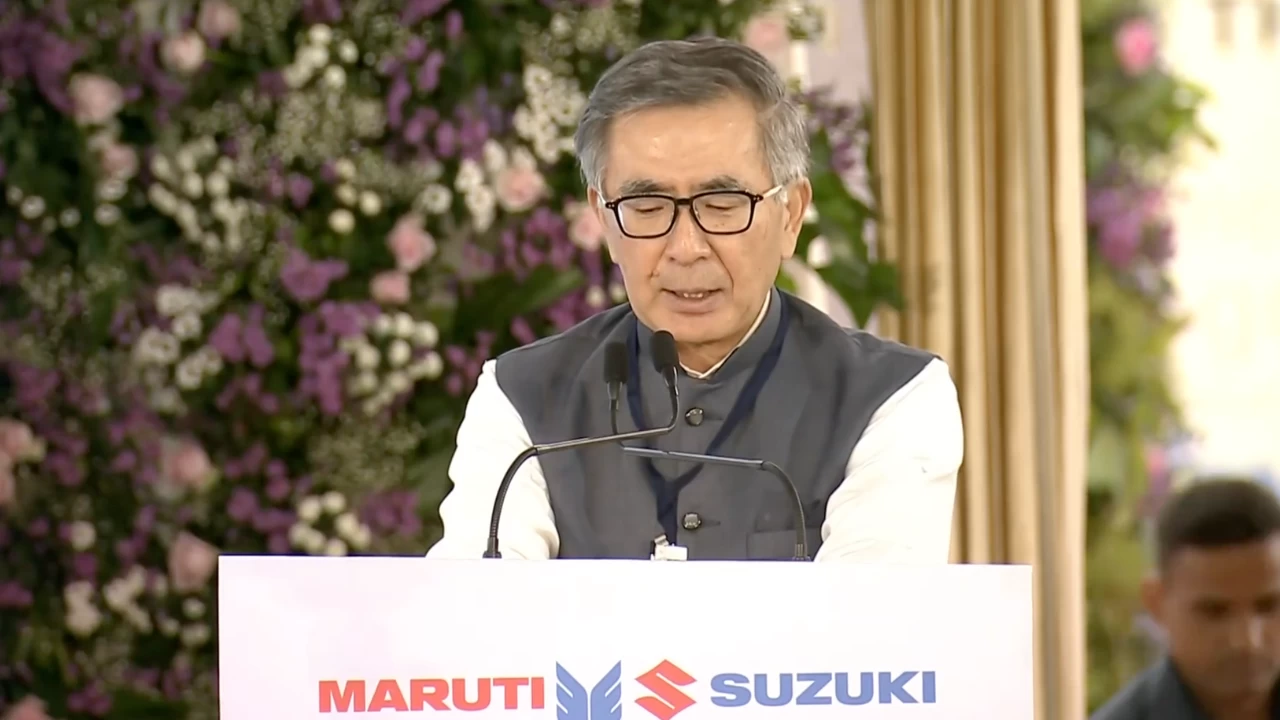

By signing in or creating an account, you agree with Associated Broadcasting Company's Terms & Conditions and Privacy Policy.


By signing in or creating an account, you agree with Associated Broadcasting Company's Terms & Conditions and Privacy Policy.

New Delhi: Maruti Suzuki have entered Electric Mobility with the launch of e-Vitara, inaugurated by Prime Minister Narendra Modi. Maruti Suzuki has been one of the largest car makers in India, and coming into a thriving EV market will only make their presence in the country stronger.
CEO of Suzuki Motor, Toshihiro Suzuki, has said that over the course of the next five to six years, the company will co-invest Rs 70,000 crore in India. They will export e-Vitara BEV across 100 countries, which include Europe and Japan. After spending four decades in the country, it is committed to supporting the country’s vision for sustainable green mobility and is making its contribution to Viksit Bharat, said Toshihiro Suzuki.
He further thanked Prime Minister Narendra Modi for his support to Suzuki in Gujarat and noted that the facility in Hasalpur will serve customers both in India and outside and in future will become the largest automobile manufacturing hub with a planned capacity of 1 million units. Mr Suzuki said that the facility was chosen to manufacture e-Vitara, the brand’s first BEV and make it the global production hub for the model.
Mr Suzuki also mentioned that their other milestone moment is the production of India’s first lithium-ion battery and cell, made at the Toshiba Denso Suzuki plant, with electrode level localisation, which are in fact used in Maruti’s hybrid models. He noted that only some of the raw materials and some semiconductors are at present coming from Japan.
Speaking on the occasion, Prime Minister Narendra Modi also said that in the strength of democracy and demography, India has a huge pool of skilled workforce which puts its stakeholders at place of advantage. He further lauded that Indian produced vehicles were going back to Japan, which shows both the strength of the Indo-Japanese relation as well as the growing trust of global companies in India.
The PM further noted that companies like Maruti Suzuki had become an ambassador of Make in India, noting that the company had been India’s largest exporter for the past four years and that from today, even EV exports will commence at the same pace. He confirmed that there will be dozens of countries across the globe that will run EVs with ‘Made in India’ markings on them.
He concluded that, unlike before when EVs were sought as an alternative option, today they are solutions to many of the issues. The Prime Minister also said that previously batteries had to be imported in the country and so the foundation of the TDSG plant in 2017. Now with a new TDSG initiative, three Japanese companies will jointly manufacture battery cells in India for the first time.
With the launch of e-Vitara, Maruti enters a very fast-growing sector which hasn’t seen the challenge from one of the biggest car manufacturers of India and will have some good from models like the Hyundai Creta EV and the MG ZS EV.








